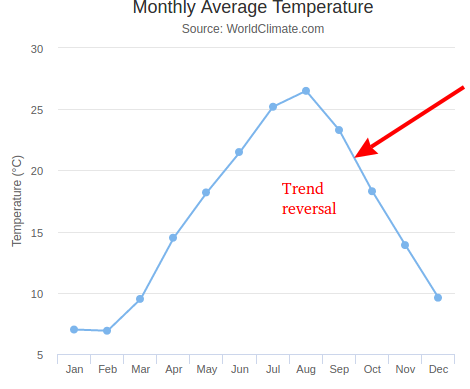I'm starting to learn machine learning, and have honed in on a problem to get my hands dirty with: how to detect a trend reversal in a time series.
I've asked this question on stats.SE more than a year ago, but now I'm looking for a machine learning approach. How would I go about this specific problem vs. generally identifying patterns in time-series data?

